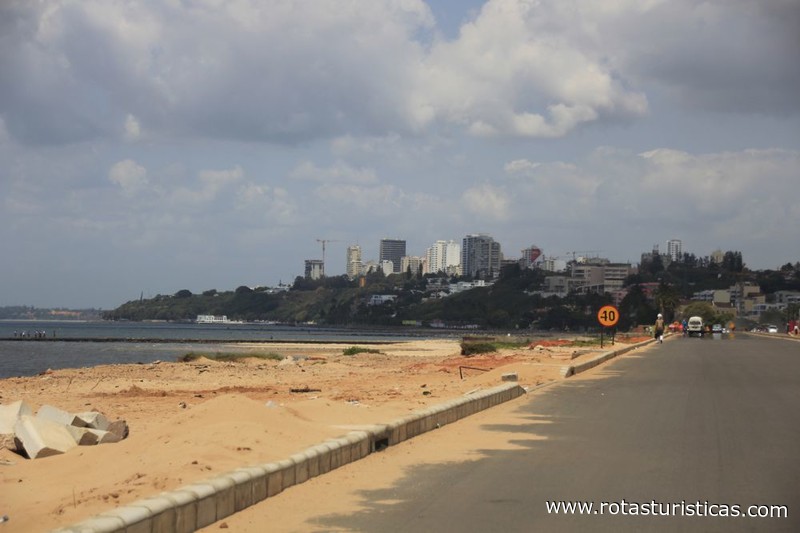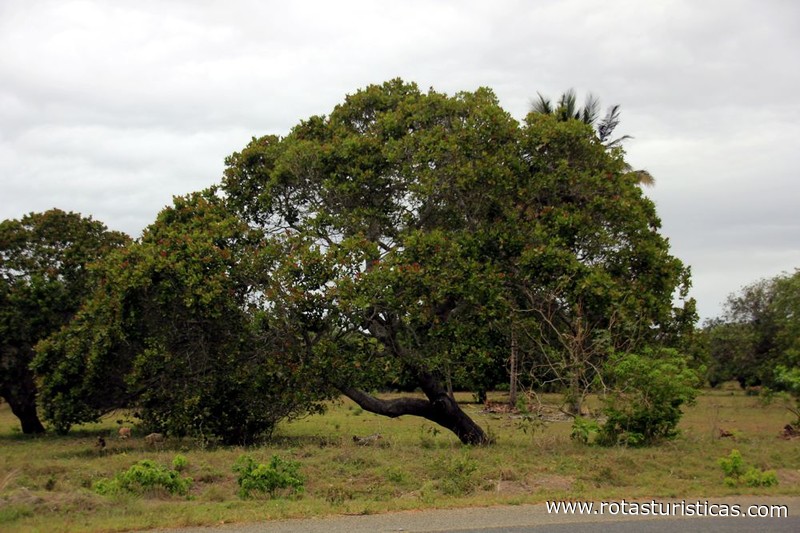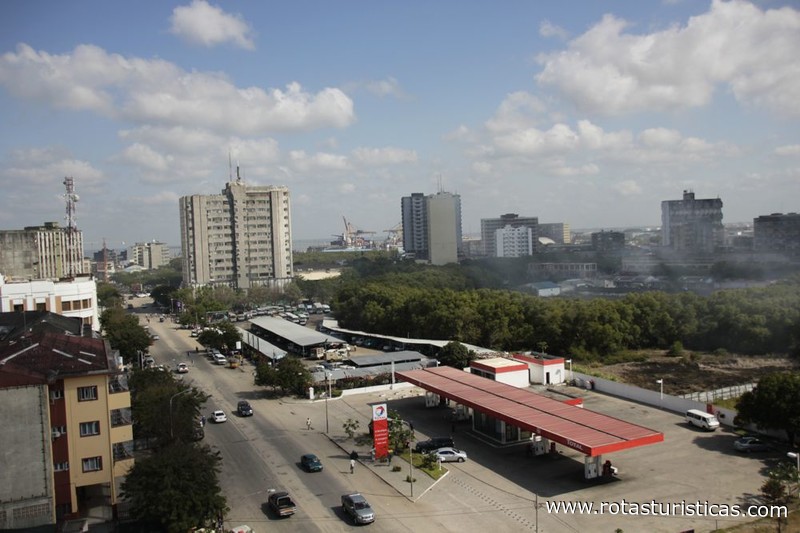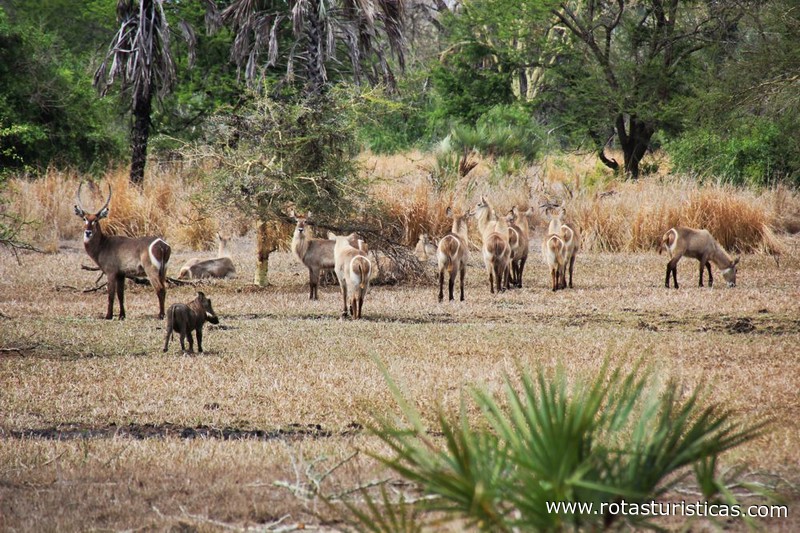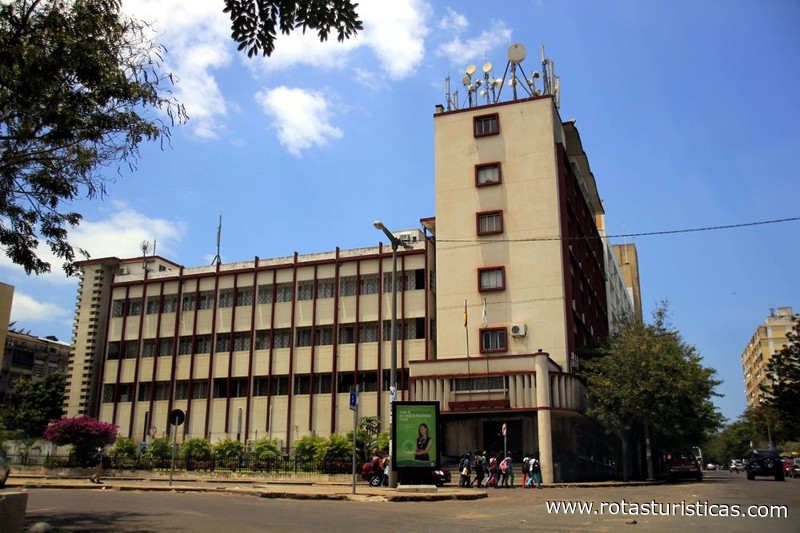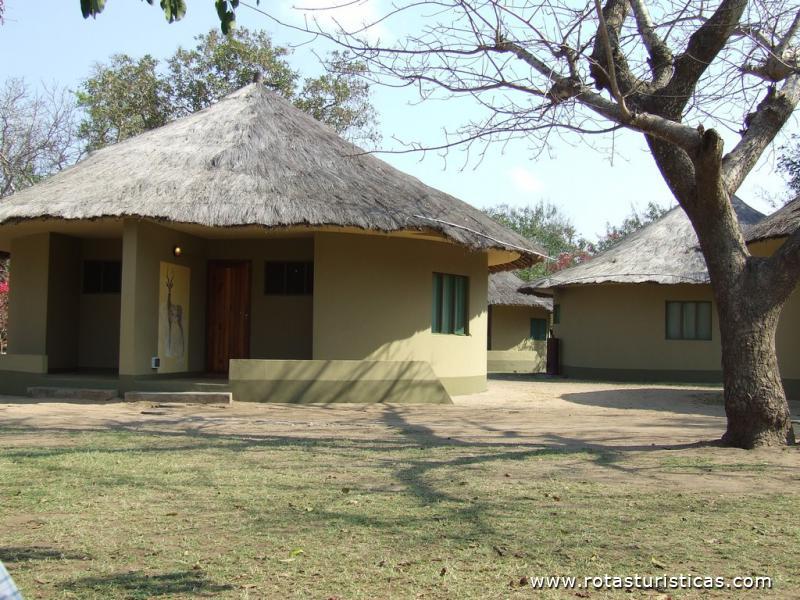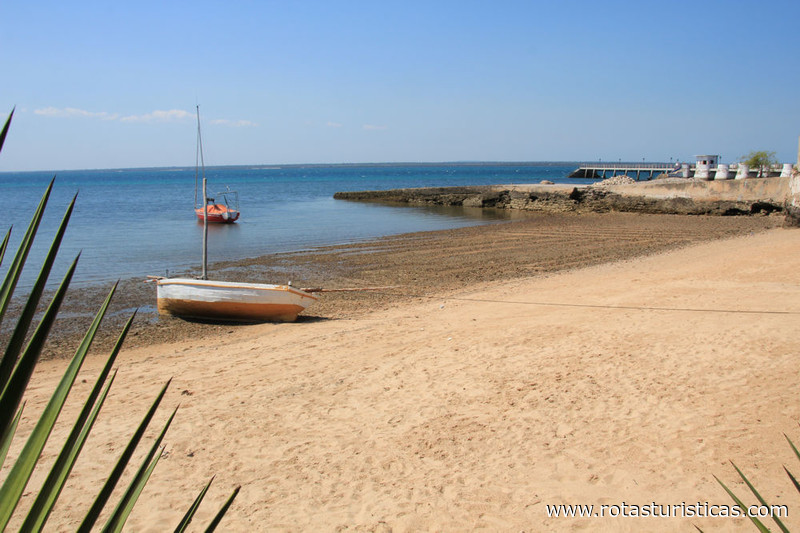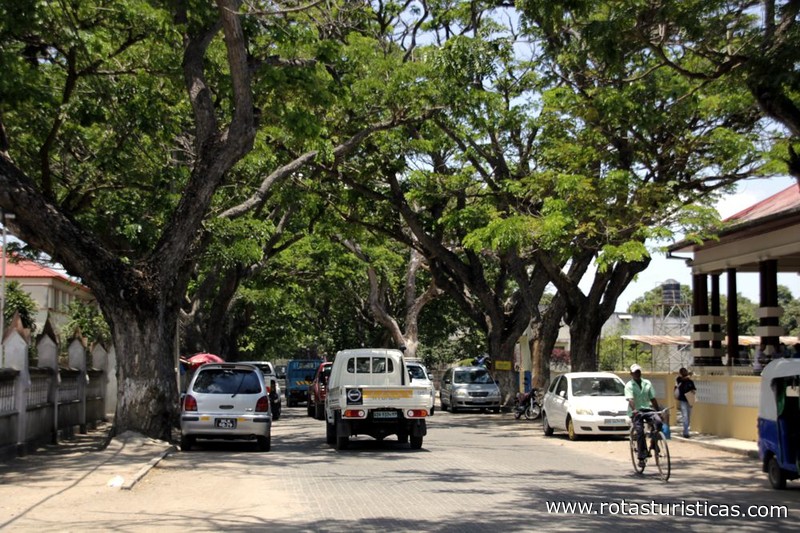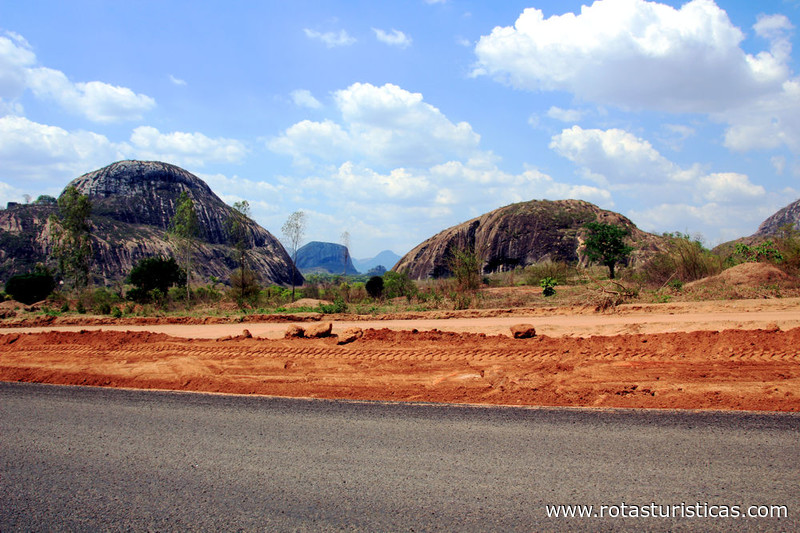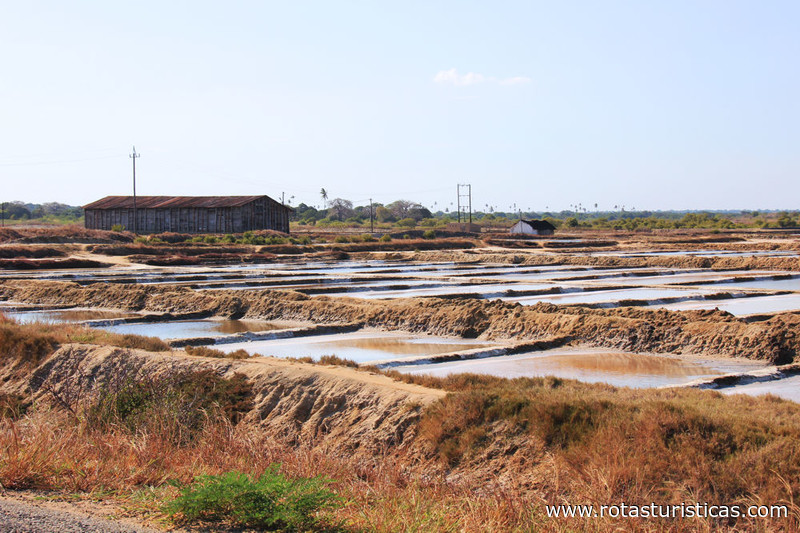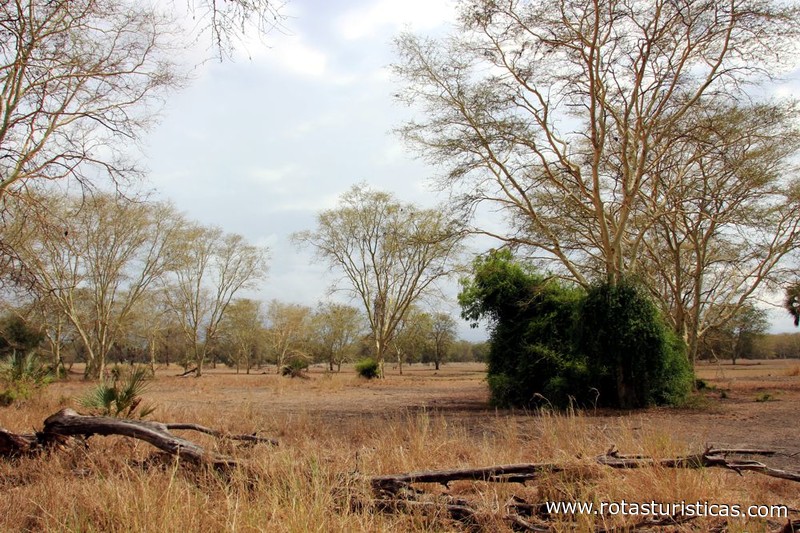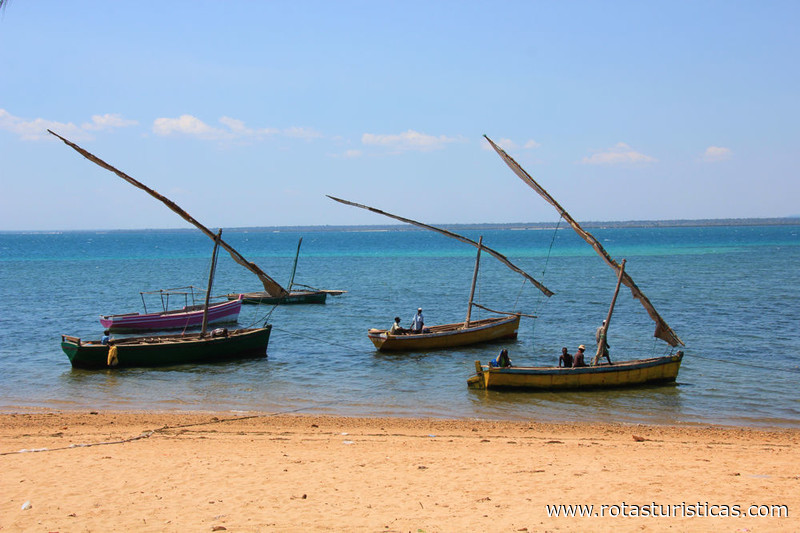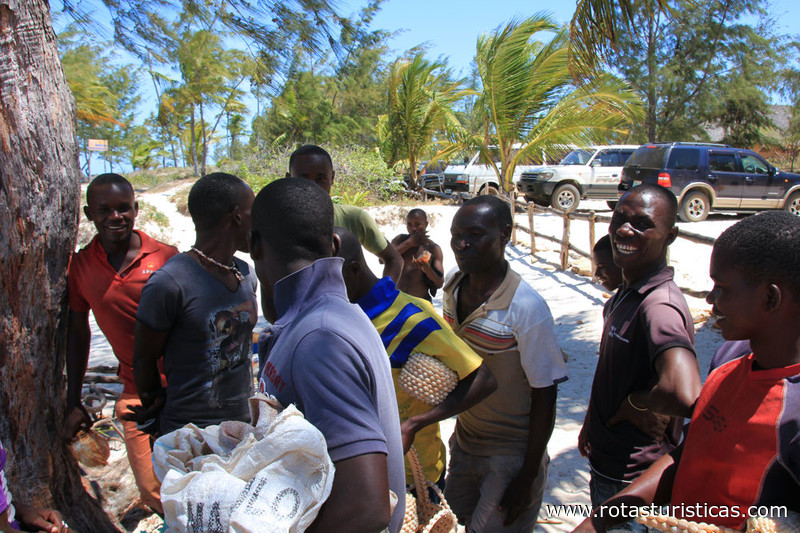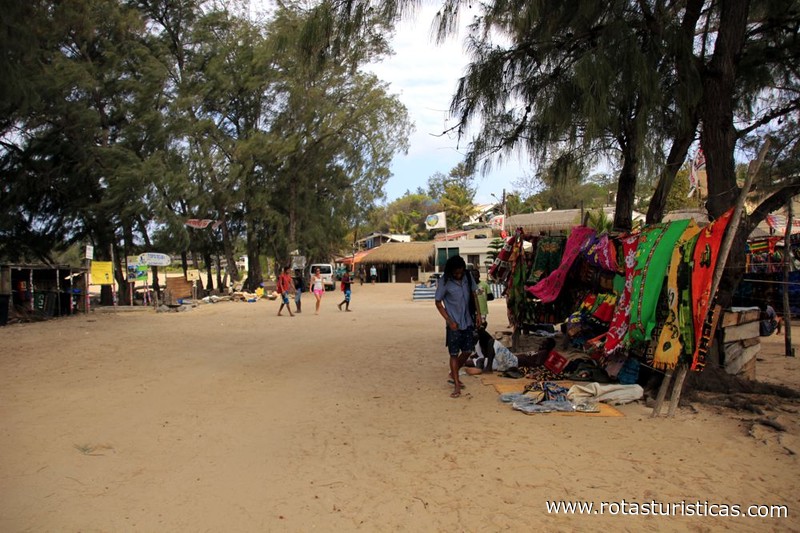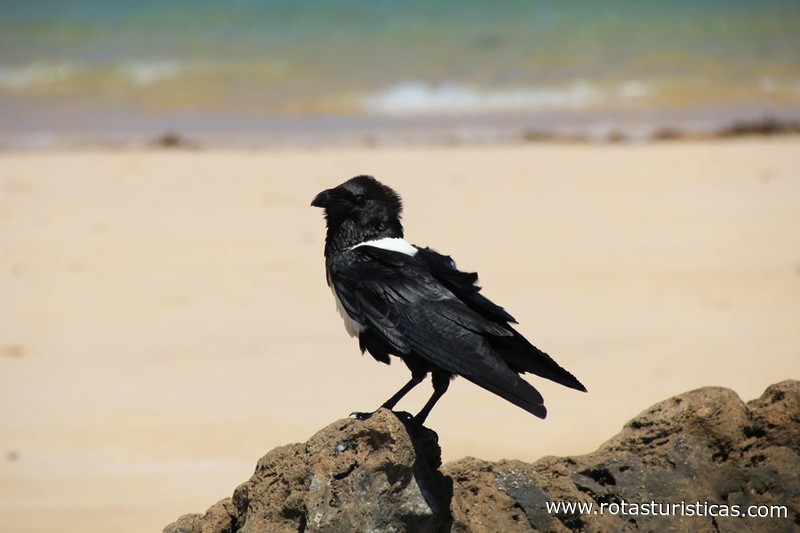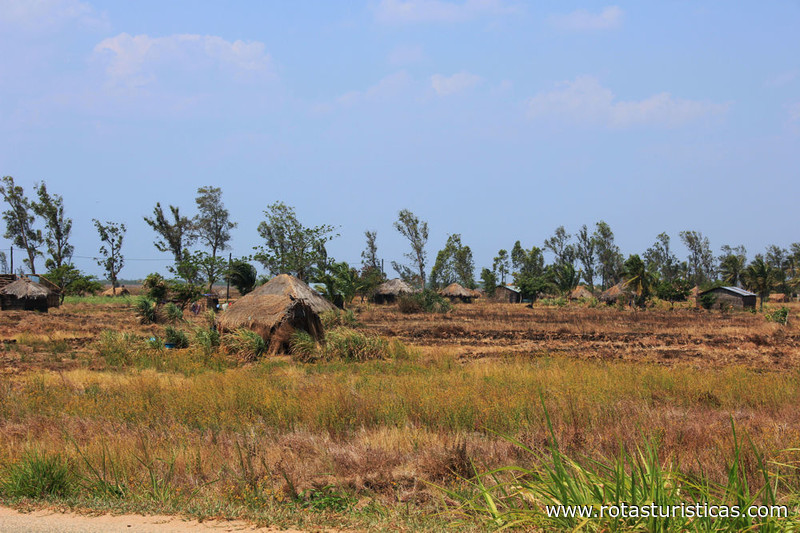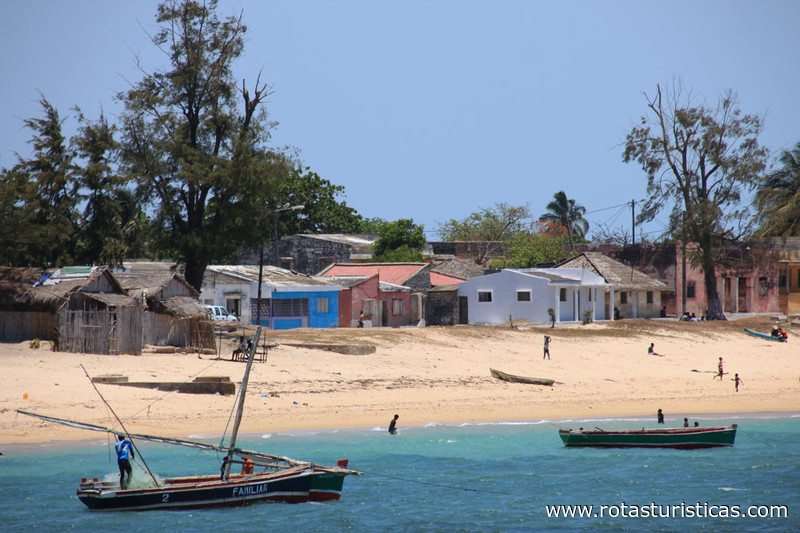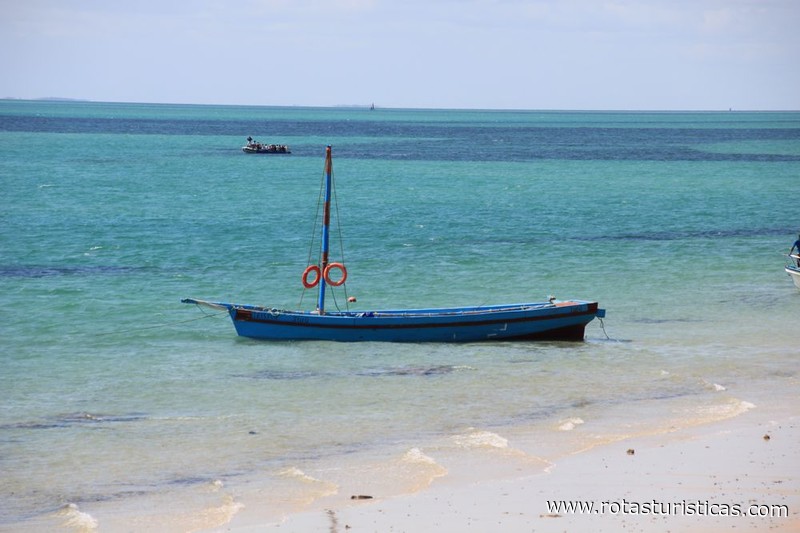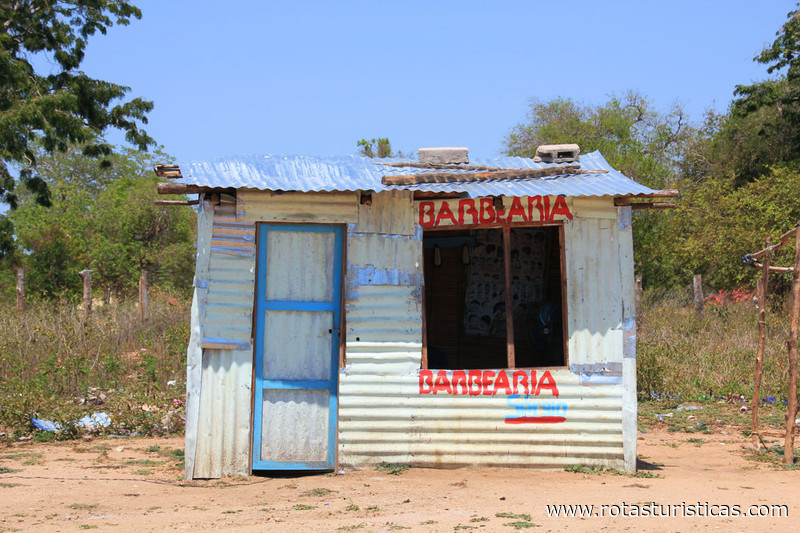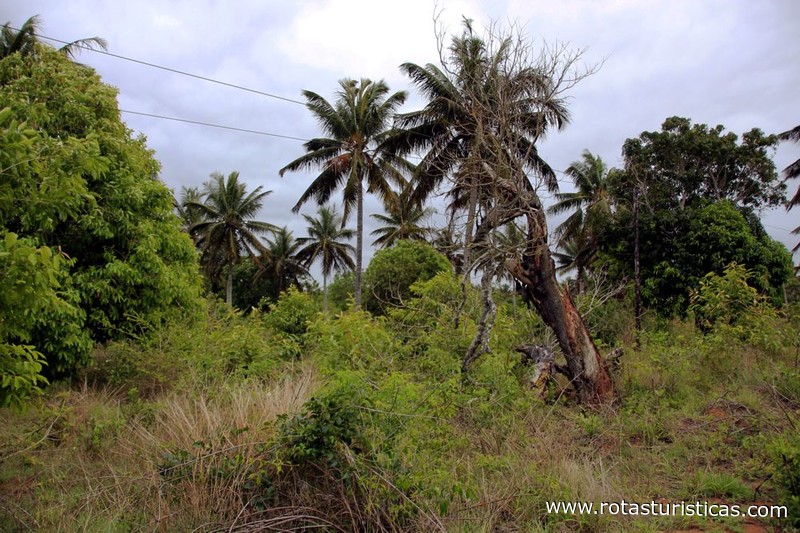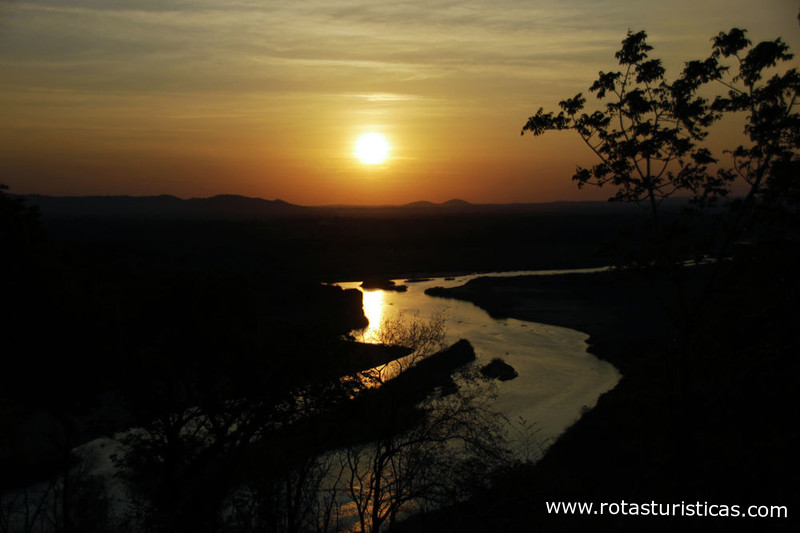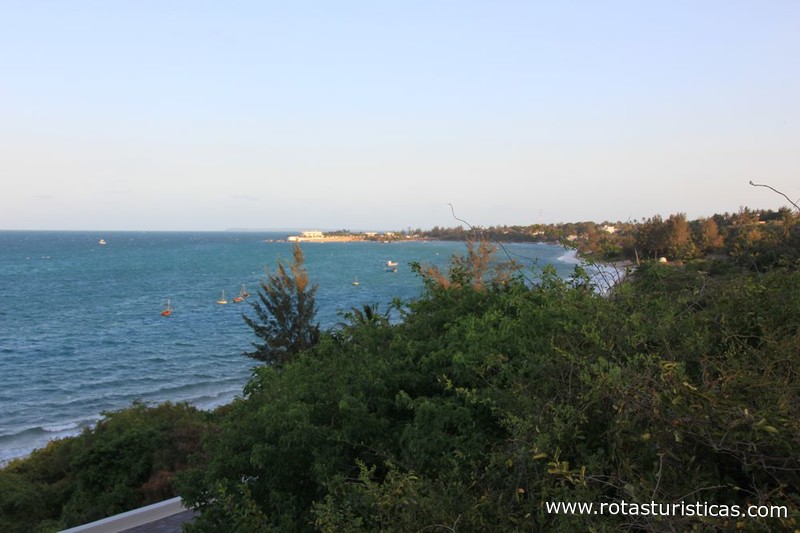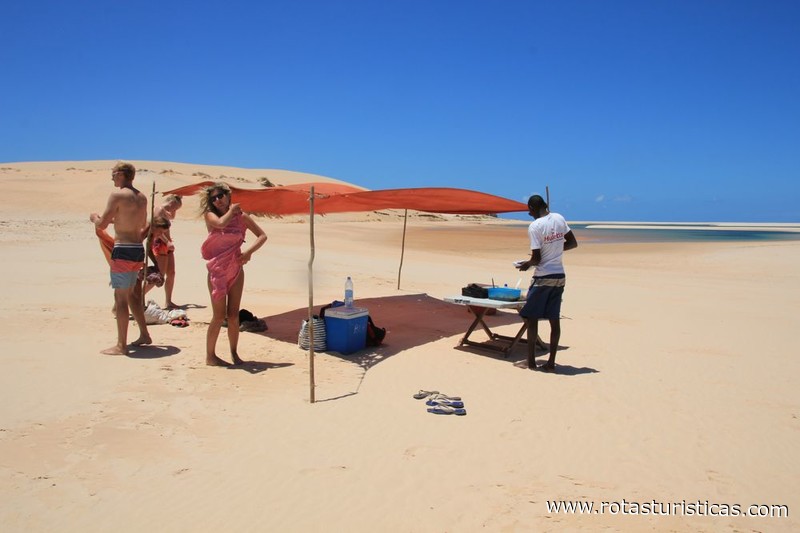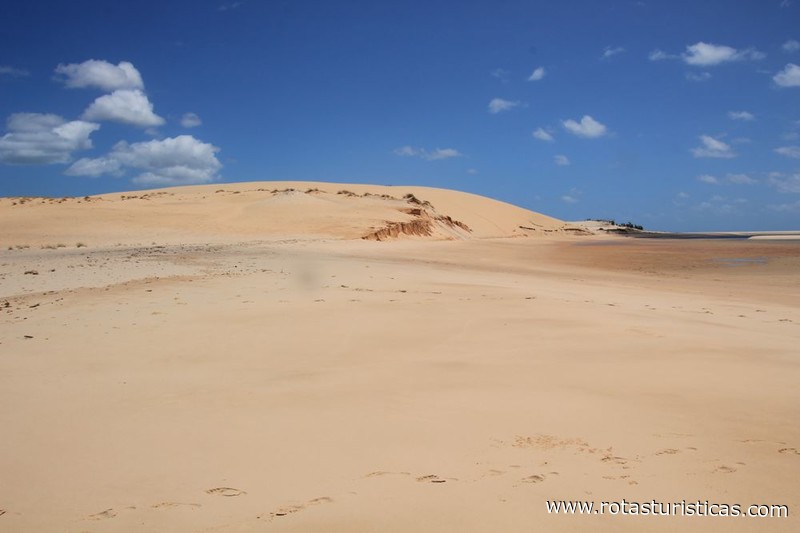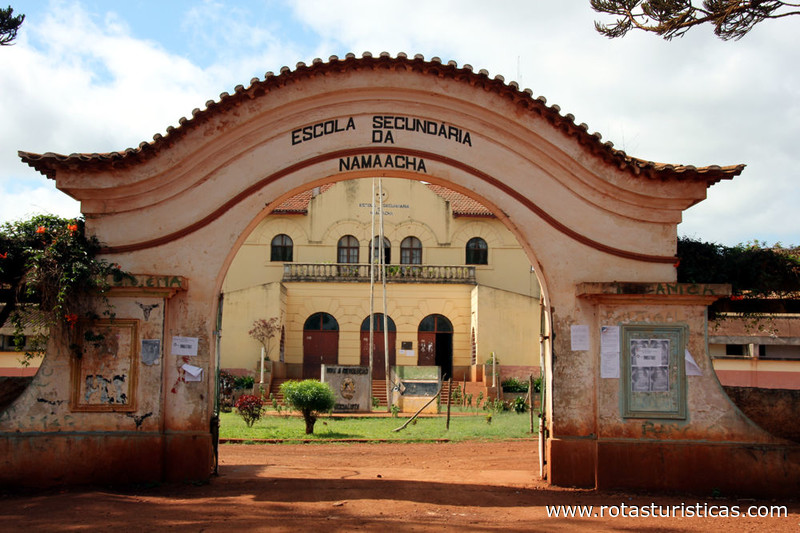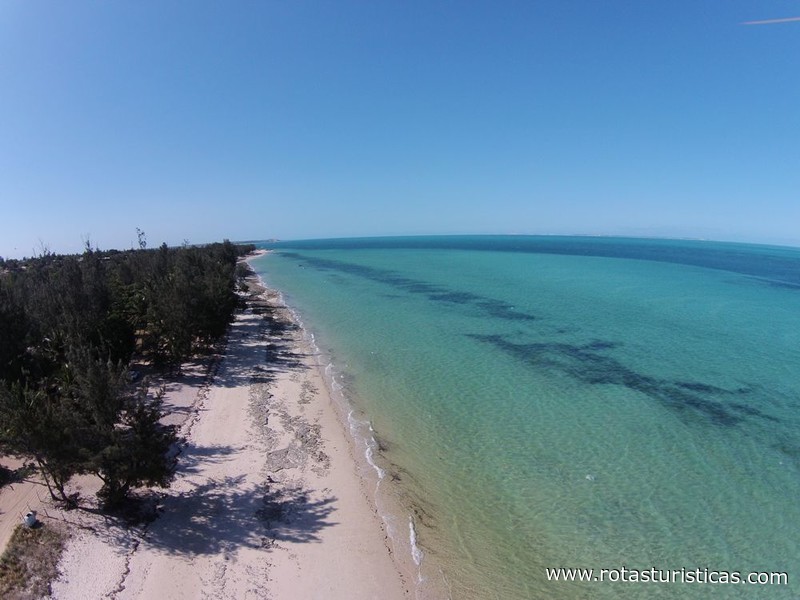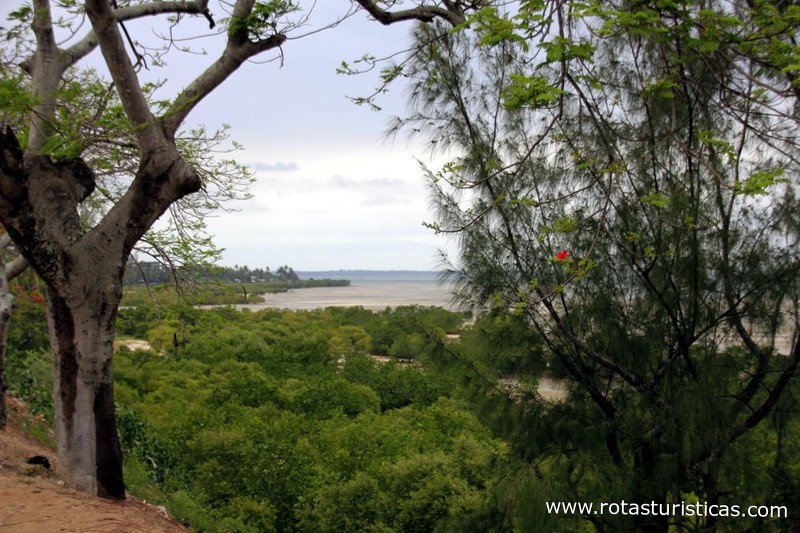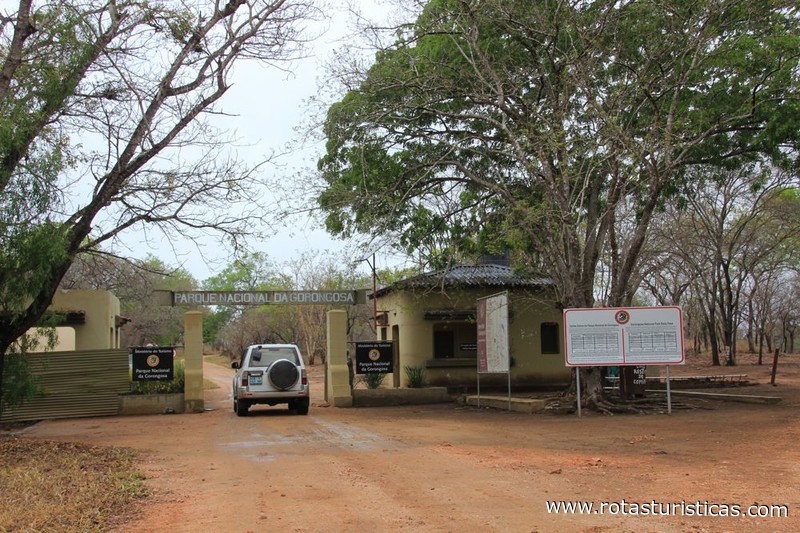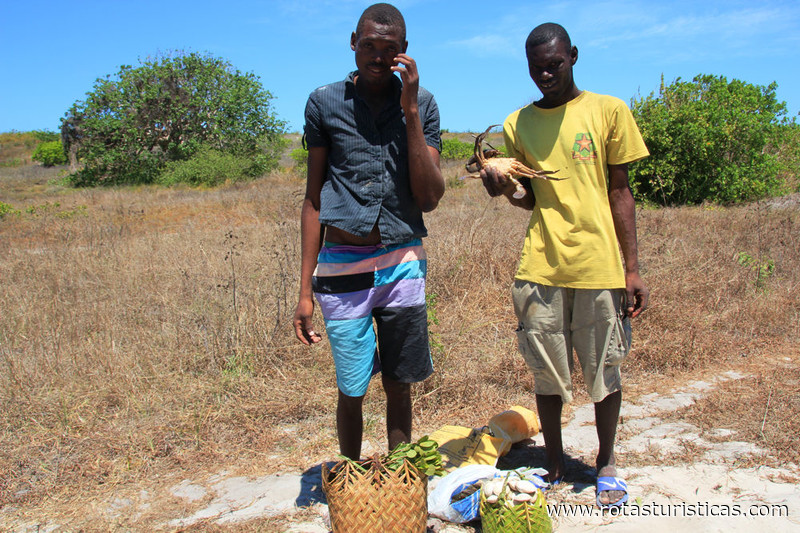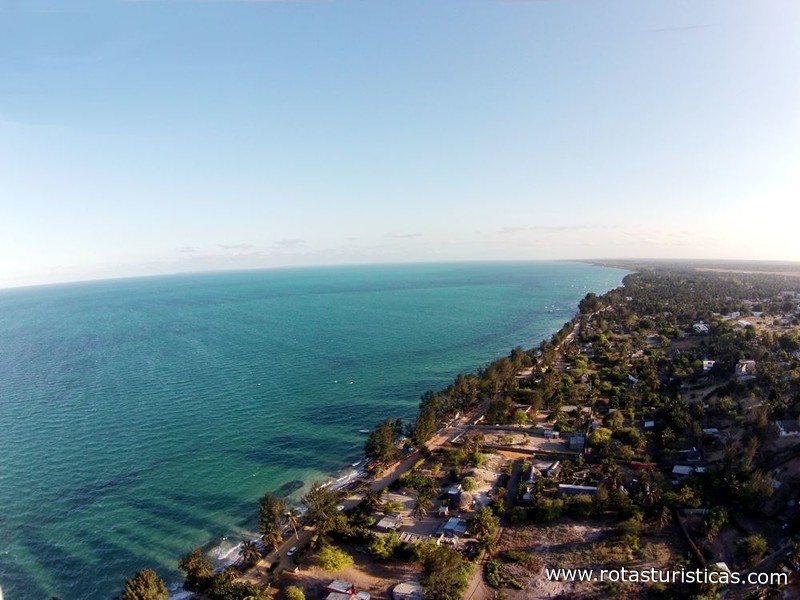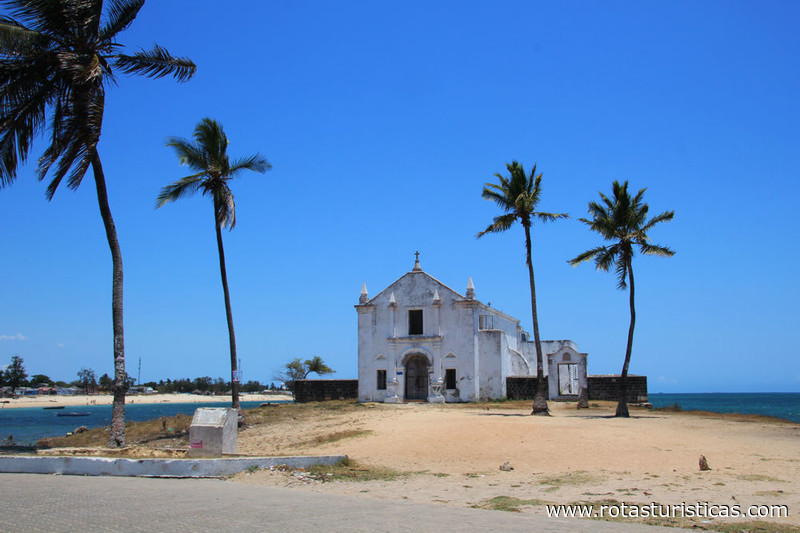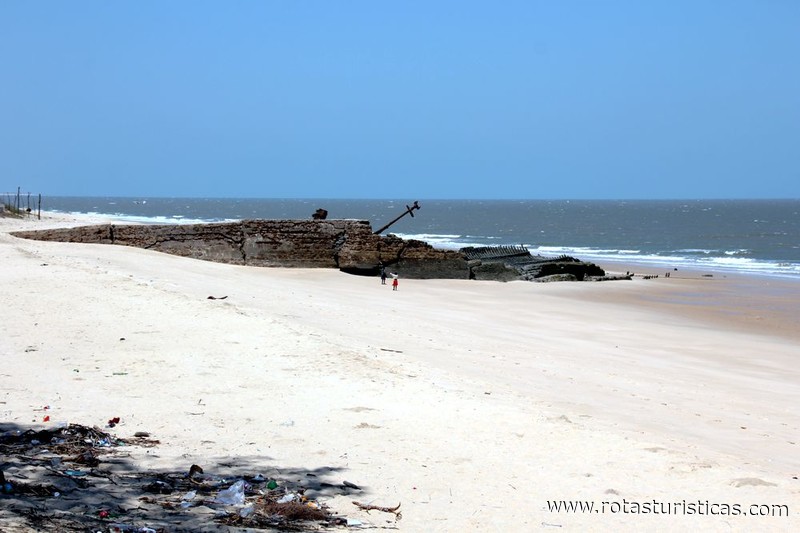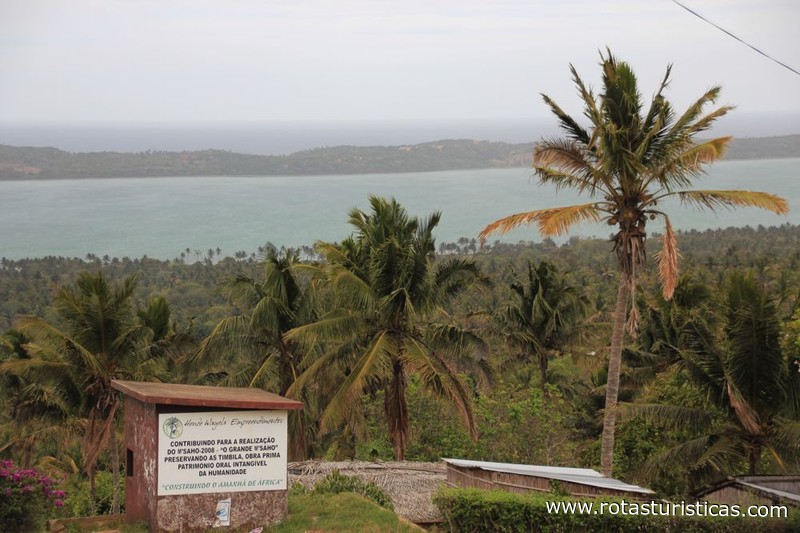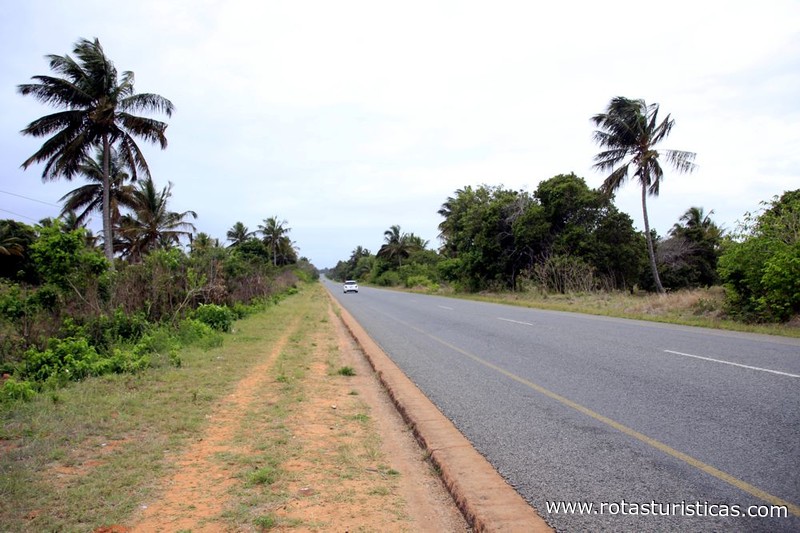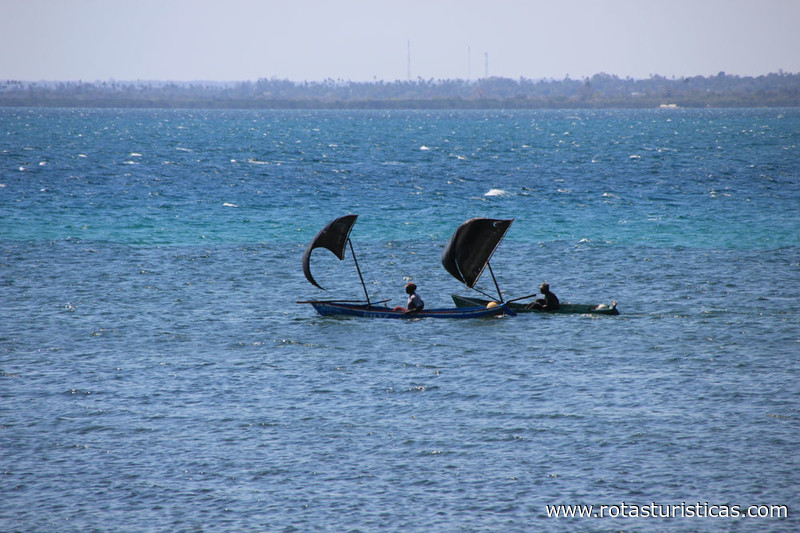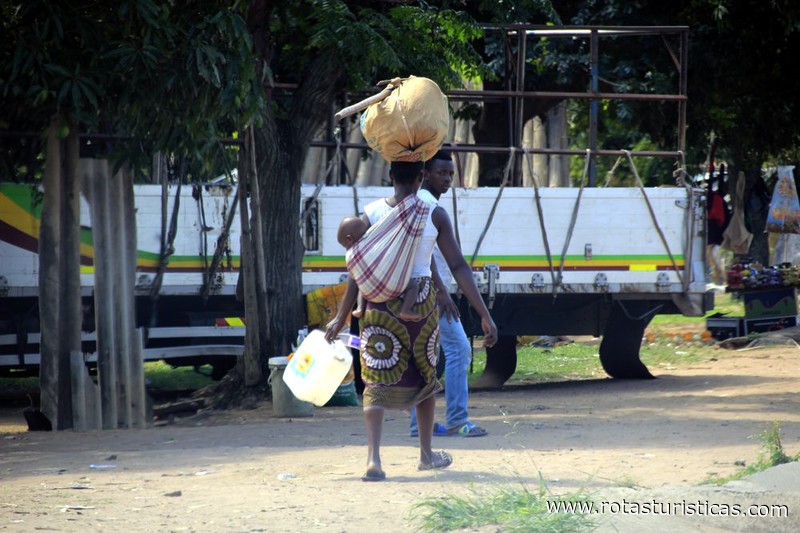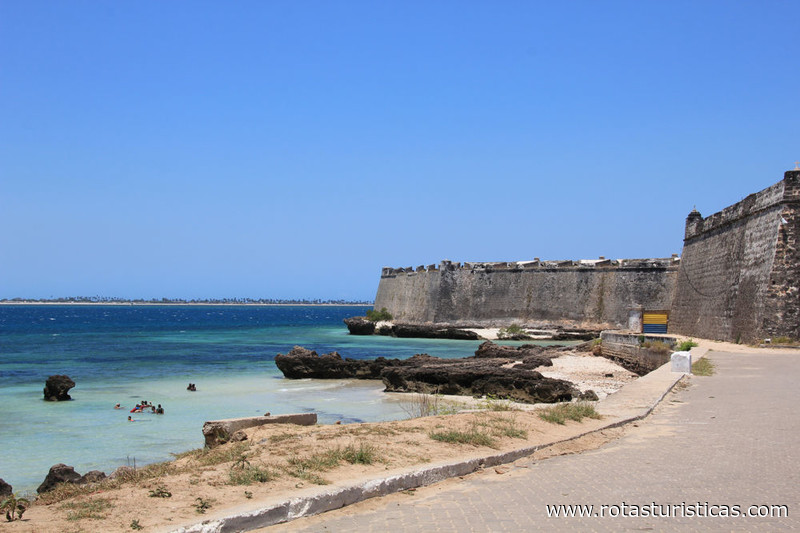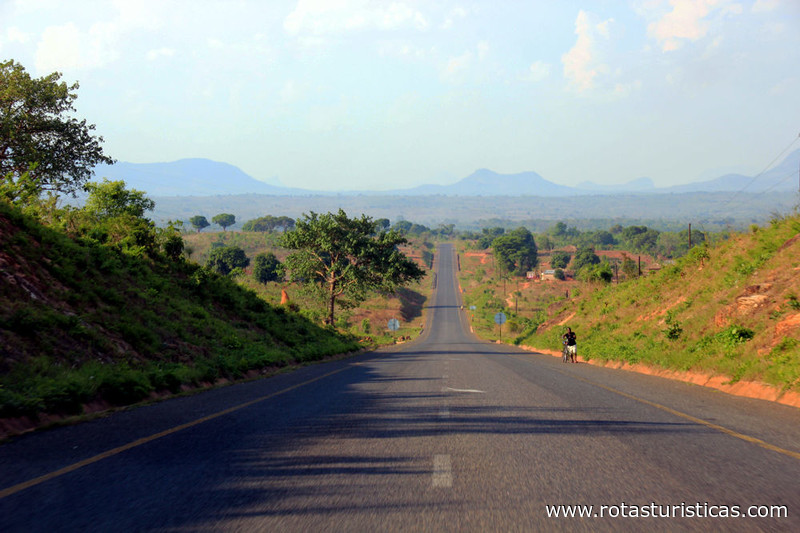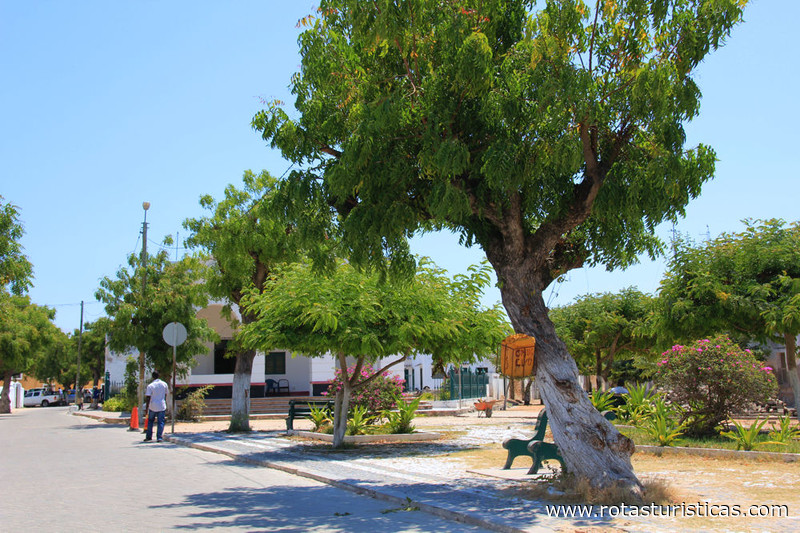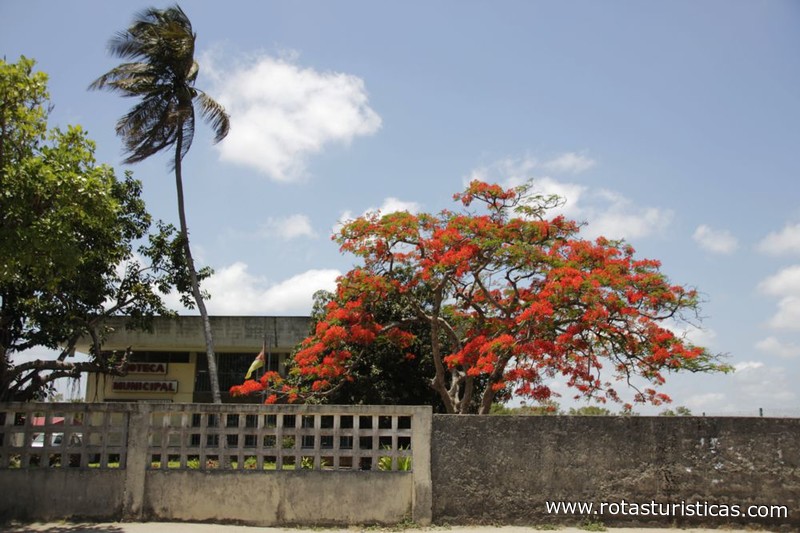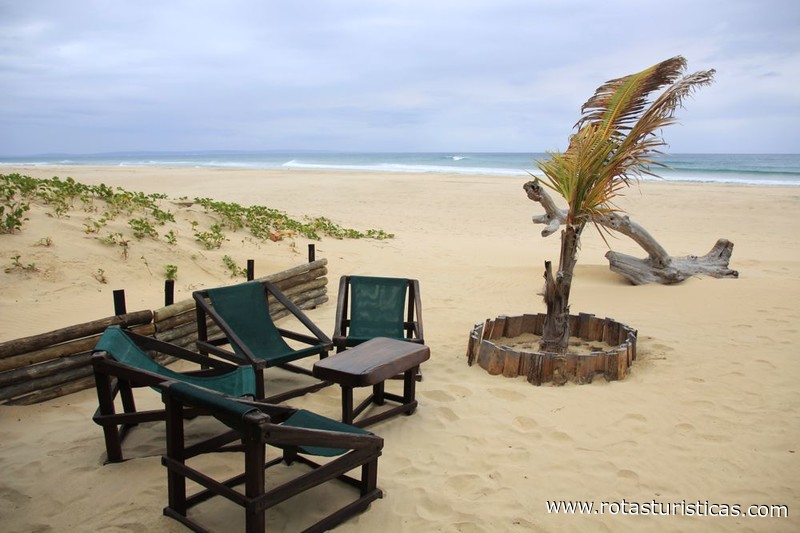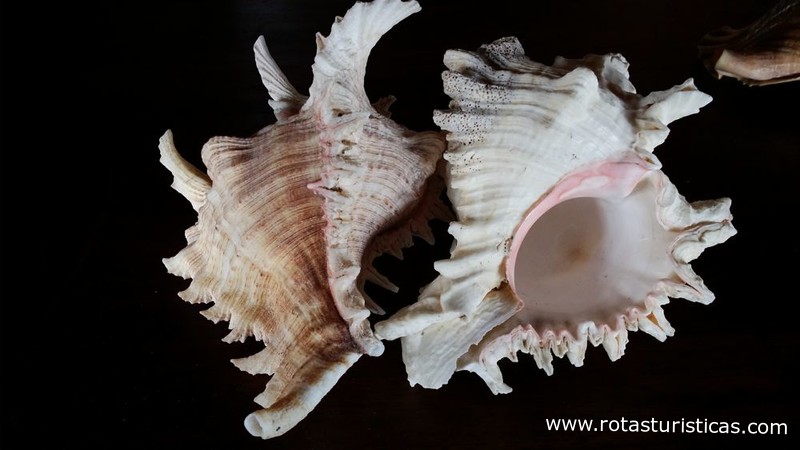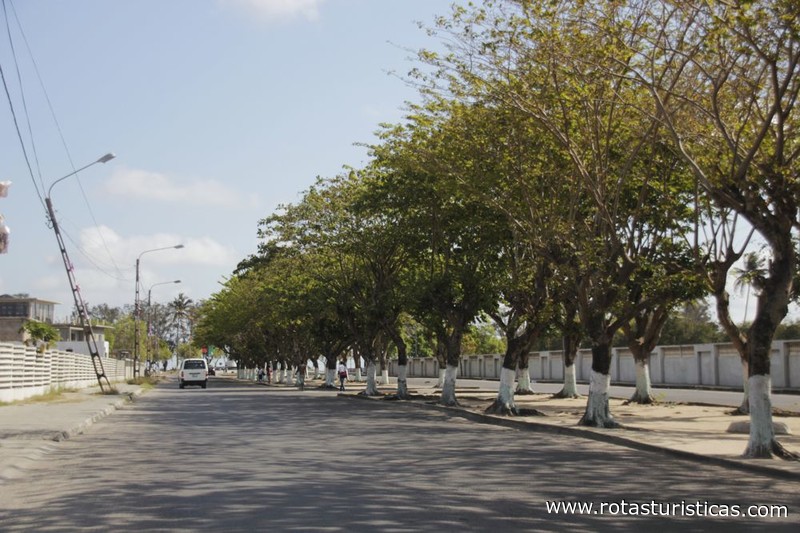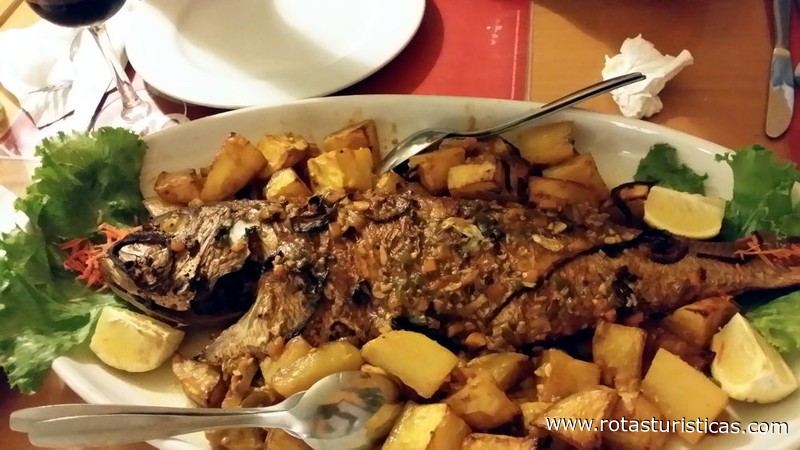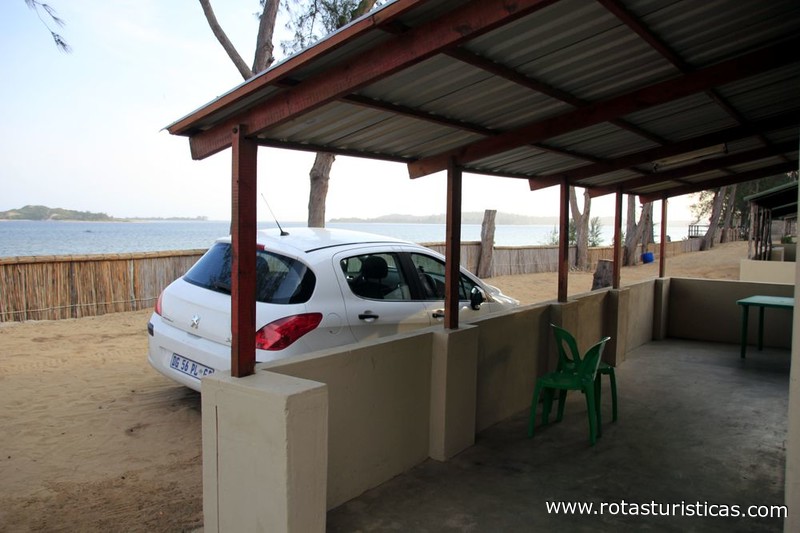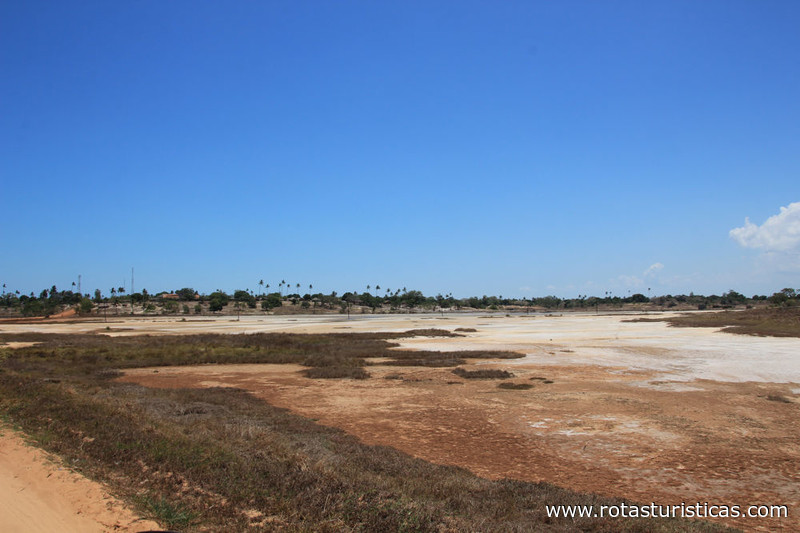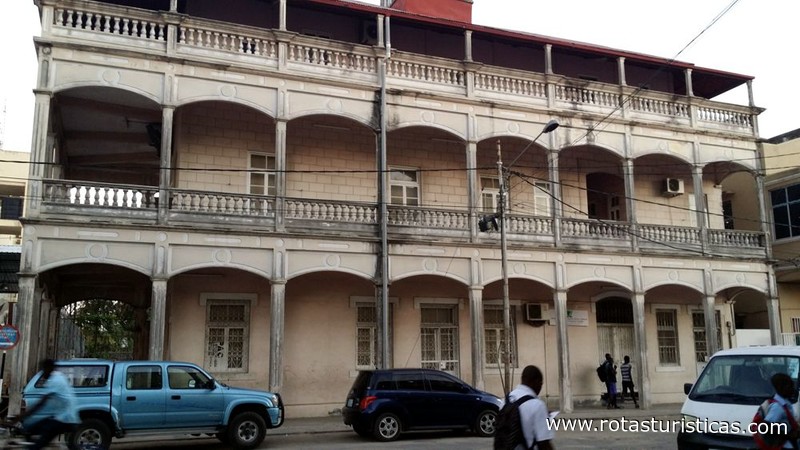Pictures of: Mozambique
Location map
Airports
Hotels and other Accommodation
What to visit
Where to Eat
Where to have fun
Consulates & Embassies
World Nomads
The Travel Insurance with the largest coverage

The Travel Insurance with the largest coverage

Mozambique
Mozambique, officially the Republic of Mozambique, is a country located in southeastern Africa, bathed by the Indian Ocean to the east and bordering Tanzania to the north, with Malawi and Zambia to the northwest, Zimbabwe to the west and Swaziland and South Africa. South to southwest. The capital and largest city of the country is Maputo (called Lourenço Marques during the Portuguese rule).
Between the first and fifth century AD, Bantu peoples migrated from northern and western regions to that region. Swahili trade ports and, later, Arabs, existed along the Mozambican coast until the arrival of the Europeans. The area was recognized by Vasco da Gama in 1498 and in 1505 it was annexed by the Portuguese Empire. After more than four centuries of Portuguese rule, Mozambique became independent in 1975, becoming the People's Republic of Mozambique shortly thereafter. After only two years of independence, the country plunged into an intense and prolonged civil war that lasted from 1977 to 1992. In 1994 the country held its first multiparty elections and remained a relatively stable presidential republic ever since.
Between the first and fifth century AD, Bantu peoples migrated from northern and western regions to that region. Swahili trade ports and, later, Arabs, existed along the Mozambican coast until the arrival of the Europeans. The area was recognized by Vasco da Gama in 1498 and in 1505 it was annexed by the Portuguese Empire. After more than four centuries of Portuguese rule, Mozambique became independent in 1975, becoming the People's Republic of Mozambique shortly thereafter. After only two years of independence, the country plunged into an intense and prolonged civil war that lasted from 1977 to 1992. In 1994 the country held its first multiparty elections and remained a relatively stable presidential republic ever since.
Official language
Portuguese
Currency
Metical
Documentation
Visa regime
Entry into the territory of the Republic of Mozambique for all visitors holding a common passport is subject to a visa, the terms and duration of which vary according to the characteristics of the intended journey, and travelers are advised to contact in a timely manner the services of Mozambican consular representations in their respective countries of origin. Local authorities no longer issue border visas to travelers from countries where there are Mozambican diplomatic or consular missions.
The entry visa in Mozambique is affixed to the valid passport for more than 6 months beyond the expiration date of the scheduled trip.
It is strongly recommended not to exceed the deadline for stay marked on the visa, under penalty of high fines. In case of need, visa extensions may be made to the Migration Services in Mozambique, although the process is time consuming and should always be initiated before the visa expires.
Entry into the territory of the Republic of Mozambique for all visitors holding a common passport is subject to a visa, the terms and duration of which vary according to the characteristics of the intended journey, and travelers are advised to contact in a timely manner the services of Mozambican consular representations in their respective countries of origin. Local authorities no longer issue border visas to travelers from countries where there are Mozambican diplomatic or consular missions.
The entry visa in Mozambique is affixed to the valid passport for more than 6 months beyond the expiration date of the scheduled trip.
It is strongly recommended not to exceed the deadline for stay marked on the visa, under penalty of high fines. In case of need, visa extensions may be made to the Migration Services in Mozambique, although the process is time consuming and should always be initiated before the visa expires.
Safety
Taking into account the incidents in the province of Sofala, travelers are advised not to travel long-distance in that province. If it is absolutely necessary to do so, the traveler should seek to integrate himself whenever possible into the columns escorted by the defense and security forces. Particular care should also be taken to monitor the situation in the media. In case of doubt, contact with consular entities should be established.
In view of the current security situation in Maputo, where there has been a particular incidence of abductions, travelers are advised to be more cautious in traveling, not to go to isolated places, to avoid routines, not to carry out daily the same routes, not to display goods with significant monetary value and always keep the family or people of confidence informed about the trips.
Crime in Mozambique is located predominantly in the urban centers and periphery of large cities. The crime rate has increased in recent months.
It is advisable that trips are always done during the day and on the main roads. Within the country, where it is necessary to use secondary roads, prior information on their safety must be obtained from the Portuguese consular authorities, local authorities or populations, in particular as regards the presence of mines and, currently, to the condition of the unpaved roads because it is in the rainy season, thus hindering, in some cases, the respective road traffic, so warnings must be scrupulously respected.
The traveler must exercise constant and intense vigilance over all his personal possessions - vehicle, suitcase, means of payment, documents - providing means of rescue in case of theft or loss of the same.
Apart from Maputo, there is no advise in any city to walk unaccompanied, in isolated places or at night, or to exhibit valuables.
In view of the current security situation in Maputo, where there has been a particular incidence of abductions, travelers are advised to be more cautious in traveling, not to go to isolated places, to avoid routines, not to carry out daily the same routes, not to display goods with significant monetary value and always keep the family or people of confidence informed about the trips.
Crime in Mozambique is located predominantly in the urban centers and periphery of large cities. The crime rate has increased in recent months.
It is advisable that trips are always done during the day and on the main roads. Within the country, where it is necessary to use secondary roads, prior information on their safety must be obtained from the Portuguese consular authorities, local authorities or populations, in particular as regards the presence of mines and, currently, to the condition of the unpaved roads because it is in the rainy season, thus hindering, in some cases, the respective road traffic, so warnings must be scrupulously respected.
The traveler must exercise constant and intense vigilance over all his personal possessions - vehicle, suitcase, means of payment, documents - providing means of rescue in case of theft or loss of the same.
Apart from Maputo, there is no advise in any city to walk unaccompanied, in isolated places or at night, or to exhibit valuables.
Tourism
The coast of Mozambique, facing the Indian Ocean, by its extension, orography and climate, is rich in all types of beaches and cradle of many marine species, some of which are in danger of extinction.
In the North the rocky beaches predominate, while in the center, near the mouths of the rivers, the muddy beaches are confined by extensive mangroves and in the South the sandy beaches with high dunes and covered with undergrowth prevail in the South. Parallel to the coast, islands isolated or grouped in small archipelagos, some with good tourist structures, provide the observation of varied vegetation and unique fauna.
In them you can find historical monuments that mark the passage of Arabs and Europeans, transparent waters that invite swimming and diving, coral reefs of extraordinary beauty, ecosystems rich in rare fish species, and open sea where hunting is permitted submarine and sport fishing of some varieties whose capture is the most desired target for lovers of these sports.
Among the many beaches that extend along the coast, there are better known or better structures to support visitors, such as Pemba, Ilha de Moçambique, Fernão Veloso, Chocas, Vilanculos, Tofo, Morrungulo, Inhassoro, Inhambane, Bazaruto, Zongoene, Xai-Xai, Bilene, Marracuene, Inhaca, Ponta de Ouro and Ponta de Malongane.
Mozambique is rich in fauna and flora, land and sea. The orography and the climate determine three types of vegetation: dense forest in the highlands of the North and Center of the Country, open forest and savannah in the South and, in the coastal zone, the mangroves. These ecosystems constitute the habitat of wild species such as elephants, lions, leopards, cheetahs, hippos, antelopes, turtles, monkeys and large numbers of birds. This richness is associated with beautiful landscapes, both in the highlands and in the coastal areas.
To make it possible for visitors to experience this richness, largely affected by war, parks like the Gorongosa National Park, which was one of the best in Africa, is a Mozambican treasure that provides environmental, educational, aesthetic, recreational and economic to all humanity.
The park is located in Sofala province in an area of 3,770km2, at the southern end of the great East African Rift Valley. The landscaped exuberance and the particularity of the wild fauna of this Park make it a perfect tourist destination for those seeking adventure or for those who are looking for leisure. Also worthy of mention are the Maputo reserves, rich in elephants, the Marromeu reserve at the mouth of the Zambezi where the buffalo prevails, and partial reserves such as Gilé and Niassa respectively northeast of Quelimane and on the banks of the Rovuma river. Also in the park of the Bazaruto nature reserve you can see exotic birds, coral reefs and protected marine species such as dugongs, dolphins and sea turtles.
In the North the rocky beaches predominate, while in the center, near the mouths of the rivers, the muddy beaches are confined by extensive mangroves and in the South the sandy beaches with high dunes and covered with undergrowth prevail in the South. Parallel to the coast, islands isolated or grouped in small archipelagos, some with good tourist structures, provide the observation of varied vegetation and unique fauna.
In them you can find historical monuments that mark the passage of Arabs and Europeans, transparent waters that invite swimming and diving, coral reefs of extraordinary beauty, ecosystems rich in rare fish species, and open sea where hunting is permitted submarine and sport fishing of some varieties whose capture is the most desired target for lovers of these sports.
Among the many beaches that extend along the coast, there are better known or better structures to support visitors, such as Pemba, Ilha de Moçambique, Fernão Veloso, Chocas, Vilanculos, Tofo, Morrungulo, Inhassoro, Inhambane, Bazaruto, Zongoene, Xai-Xai, Bilene, Marracuene, Inhaca, Ponta de Ouro and Ponta de Malongane.
Mozambique is rich in fauna and flora, land and sea. The orography and the climate determine three types of vegetation: dense forest in the highlands of the North and Center of the Country, open forest and savannah in the South and, in the coastal zone, the mangroves. These ecosystems constitute the habitat of wild species such as elephants, lions, leopards, cheetahs, hippos, antelopes, turtles, monkeys and large numbers of birds. This richness is associated with beautiful landscapes, both in the highlands and in the coastal areas.
To make it possible for visitors to experience this richness, largely affected by war, parks like the Gorongosa National Park, which was one of the best in Africa, is a Mozambican treasure that provides environmental, educational, aesthetic, recreational and economic to all humanity.
The park is located in Sofala province in an area of 3,770km2, at the southern end of the great East African Rift Valley. The landscaped exuberance and the particularity of the wild fauna of this Park make it a perfect tourist destination for those seeking adventure or for those who are looking for leisure. Also worthy of mention are the Maputo reserves, rich in elephants, the Marromeu reserve at the mouth of the Zambezi where the buffalo prevails, and partial reserves such as Gilé and Niassa respectively northeast of Quelimane and on the banks of the Rovuma river. Also in the park of the Bazaruto nature reserve you can see exotic birds, coral reefs and protected marine species such as dugongs, dolphins and sea turtles.
Gastronomy
The richest province in gastronomy is Zambézia in the center of the country. The Zambezi cuisine is based on the coconut, having as main course the Chicken Zambeziana.
Mozambique for being facing the Indian Ocean, have many Indian, Goesas and Chinese influences on food. Curry is widely used throughout the cuisine of the north to the south of the country.
The basis of Mozambican food is corn. From this cereal is made a mass that in the south is called ushwa, in the center and north chima. This pasta is accompanied by vegetable sauces, such as cacana and mboa, and also by seafood, especially shrimp. Dry fish is also widely used.
Mozambique is very rich in shellfish. Shrimp, lobster, crab, cava-cava, ameijoa and squid are some of the shellfish that Mozambique exports to the West.
Typical products are piri-piri, sesame, peanut, cashew, coconut, etc. In beverages there are distilled spirits such as nipa and katchulima, among others. Also make corn beers, mapira, palm tree etc. There are also cashew, and canho juices.
Mozambique for being facing the Indian Ocean, have many Indian, Goesas and Chinese influences on food. Curry is widely used throughout the cuisine of the north to the south of the country.
The basis of Mozambican food is corn. From this cereal is made a mass that in the south is called ushwa, in the center and north chima. This pasta is accompanied by vegetable sauces, such as cacana and mboa, and also by seafood, especially shrimp. Dry fish is also widely used.
Mozambique is very rich in shellfish. Shrimp, lobster, crab, cava-cava, ameijoa and squid are some of the shellfish that Mozambique exports to the West.
Typical products are piri-piri, sesame, peanut, cashew, coconut, etc. In beverages there are distilled spirits such as nipa and katchulima, among others. Also make corn beers, mapira, palm tree etc. There are also cashew, and canho juices.
Weather
Tropical climate, although more moderate in the South.
- Rainy regions: Center and North.
- Hotter months: January / February (22º to 35º, 40º in Tete).
- Coldest month: July (16th to 25th)
- Dry months: July to August.
- Wetter months: December to January.
- Rainy season from November to April.
- Rainy regions: Center and North.
- Hotter months: January / February (22º to 35º, 40º in Tete).
- Coldest month: July (16th to 25th)
- Dry months: July to August.
- Wetter months: December to January.
- Rainy season from November to April.
Health care
Mozambique is a country at risk of spreading Yellow Fever, and their authorities have determined that travelers wishing to enter Mozambique from 43 countries in their large border are required to provide proof of vaccination against Febre-Amarela. most of them are Brazil, Angola, Guinea-Bissau and São Tomé and Príncipe. Mozambican citizens who move to one of those countries are also covered. If the traveler does not present the certificate of vaccination, he must be vaccinated at the entry point, for the payment of approximately 40 euros.
At the time of the hottest months of the year and of the rains, there are diarrheal and cholera outbreaks practically throughout the country, so travelers are advised to redouble all the basic care and hygiene that should be adopted to prevent these diseases .
Maputo and Beira are well endowed with public and private hospital structures, and there is a greater need in the provinces. In case of urgency, the traveler should resort to the urgency of the respective provincial hospital and contact relatives, insurance company and consular services, in order to organize promptly their evacuation to the capital or to Portuguese territory.
The traveler should consult his family doctor or tropical medicine health services to inform him of preventive measures against malaria and other diseases such as cholera, hepatitis A and B, typhoid fever, yellow fever, polio, diphtheria, tetanus, BCG and HIV-AIDS. Cases of cholera have already occurred in Maputo.
Only bottled and bottled water or self-treated water should be consumed and raw vegetables should be avoided and the fruit washed well.
At the time of the hottest months of the year and of the rains, there are diarrheal and cholera outbreaks practically throughout the country, so travelers are advised to redouble all the basic care and hygiene that should be adopted to prevent these diseases .
Maputo and Beira are well endowed with public and private hospital structures, and there is a greater need in the provinces. In case of urgency, the traveler should resort to the urgency of the respective provincial hospital and contact relatives, insurance company and consular services, in order to organize promptly their evacuation to the capital or to Portuguese territory.
The traveler should consult his family doctor or tropical medicine health services to inform him of preventive measures against malaria and other diseases such as cholera, hepatitis A and B, typhoid fever, yellow fever, polio, diphtheria, tetanus, BCG and HIV-AIDS. Cases of cholera have already occurred in Maputo.
Only bottled and bottled water or self-treated water should be consumed and raw vegetables should be avoided and the fruit washed well.
Telecommunication and Electricity
Mobile Phones
The national telecommunications network - TDM - is of satisfactory quality, but with high tariffs. There are public telephones (booths) in the cities, which work with cards.
There are two mobile networks - MCEL and VODACOM - covering provincial capital cities, some districts and some major roads, which can be used in prepaid and contract mobile phones with roaming. It is possible to use Portuguese mobile network telephones.
The use of mobile devices can be used if roaming is enabled, however, paying attention to very high roaming charges.
Internet
There is Internet access via the telephone and satellite line, as well as service per line dedicated to large users. In some capital cities of the province there are already some "cyber cafes".
In Maputo, there is wireless internet in several cafes and restaurants (Dolce Vita and Nautilus, for example).
Electricity
The electricity is 220 Volt 50 Hz.
It is advisable to have a universal adapter kit for the sockets.
The national telecommunications network - TDM - is of satisfactory quality, but with high tariffs. There are public telephones (booths) in the cities, which work with cards.
There are two mobile networks - MCEL and VODACOM - covering provincial capital cities, some districts and some major roads, which can be used in prepaid and contract mobile phones with roaming. It is possible to use Portuguese mobile network telephones.
The use of mobile devices can be used if roaming is enabled, however, paying attention to very high roaming charges.
Internet
There is Internet access via the telephone and satellite line, as well as service per line dedicated to large users. In some capital cities of the province there are already some "cyber cafes".
In Maputo, there is wireless internet in several cafes and restaurants (Dolce Vita and Nautilus, for example).
Electricity
The electricity is 220 Volt 50 Hz.
It is advisable to have a universal adapter kit for the sockets.
Other tourist destinations in:
Mozambique
Mozambique
Other world tourist destinations
Why to book with CLUBE TRAVEL
The best prices
Our partnerships with the world´s largest operators offer research on the best market prices.
More options
At Rotas Turisticos you can book the hotel, buy the air ticket, book the transfer from the airport to the hotel and vice versa, book the local excursions, rent the car, take travel insurance and consult the places to visit and where to go.
Holiday Tips & Destinations
Hundreds of holiday destinations with all the options that allow you to easily choose the destination that best suits your dream vacation.
CLUBE TRAVEL
Links

